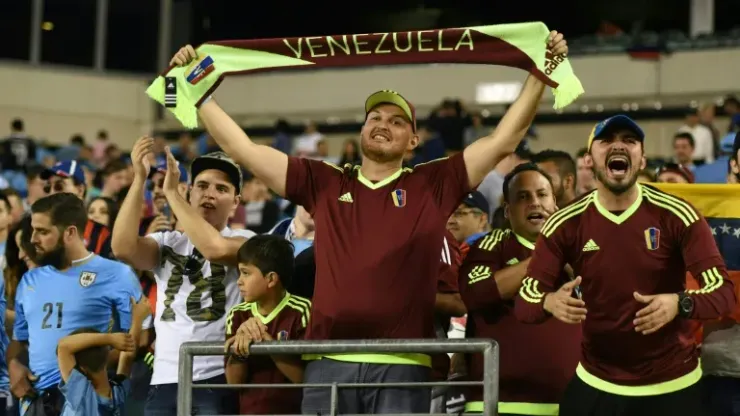Caracas (AFP) – Their national team’s triumphs at the Copa America Centenario offer Venezuelans a welcome escape from their problems, though even in celebration they feel the pinch of a worsening economic crisis.
Eleazar Martinez, a 25-year-old fan, has been enjoying the Vinotinto’s winning performance in the US-hosted regional tournament.
The Venezuelan team faces Argentina in the quarter-finals on Saturday with a place in next week’s semi-finals at stake.
“It has been incredible, but things are difficult,” Martinez acknowledged.
“Before you could go out and watch the matches and have a few beers, but it is too expensive today.”
So he watches his team’s games at home on television with his family.
He donned an old Vinotinto jersey. Buying a new one would be “a utopia,” he said.
In Mundo Vinotinto, the team’s official store in Caracas, its Copa America jersey retails at 54,000 bolivares ($89 at the official floating exchange rate and $49 at the black market rate.)
That’s triple Venezuela’s minimum monthly wage of just 15,051 bolivars, which is supplemented with an 18,583-bolivar bonus for food.
– The love is strong –
But the public’s passion for Vinotinto has gone a long way toward easing the sting.
Carla Pereira, Mundo Vinotinto’s manager, said sales have risen 30 percent during the tournament.
If not for the economic situation, she said, “we would have a line out the door.”
The squad trained by former Venezuelan goalkeeper Rafael Dudamel “is giving us good news when we need it most.”
The oil-rich country has been hit by growing unrest sparked by widespread food shortages. Looting and violence has left at least five dead.
Adding to the misery is the world’s highest inflation, which topped 180 percent last year and is expected to hit 700 percent this year.
Ana De Pablos, a 45-year-old lawyer, still wants to buy a jersey for her brother Tulio .
She goes into a store, asks the price and leaves.
“You have to think about it because there are many other priorities — services, food, that are more expensive every day,” she said.
Said a saleswoman: “People come in, ask the price and leave. They want to buy and can’t. You can see it in their faces.”
Venezuelans who can’t afford an official jersey can always opt for a knockoff, which sell for 7,000 bolivars, about half the minimum monthly wage.
“People say: ‘Amid so much disruption, with the uncertainty and because I can’t find flour, milk, sugar, I’m going to give myself the satisfaction of putting on the Vinotinto,” said Sixta Lopez, a 44-year-old saleswoamn.
Even if you cheer on Vinotinto from home, as Eleazar Martinez does, the price can be high. A couple of beers and a bag of plantain chips comes to a sixth of the minimum wage.
And that’s if you can find beer, which is in short supply because a shortage of imported hops.
Martinez agrees cheering on the team offers an escape from everyday problems.
“You disconnect with the Vinotinto, you feel happy, but when the match ends, reality returns.”
200+ Channels With Sports & News
- Starting price: $33/mo. for fubo Latino Package
- Watch Premier League, Women’s World Cup, Euro 2024 & Gold Cup
The New Home of MLS
- Price: $14.99/mo. for MLS Season Pass
- Watch every MLS game including playoffs & Leagues Cup
Many Sports & ESPN Originals
- Price: $10.99/mo. (or get ESPN+, Hulu & Disney+ for $14.99/mo.)
- Features Bundesliga, LaLiga, Championship, & FA Cup
2,000+ soccer games per year
- Price: $5.99/mo
- Features Champions League, Serie A, Europa League & Brasileirāo
175 Premier League Games & PL TV
- Starting price: $5.99/mo. for Peacock Premium
- Watch 175 exclusive EPL games per season






